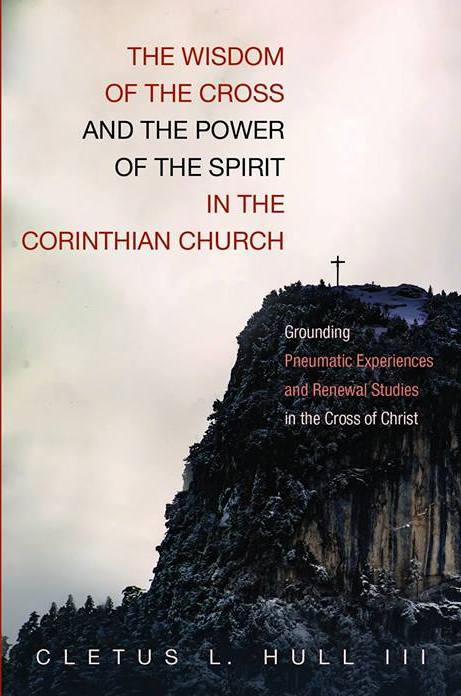The Cross Divides the Saved and Lost by God’s Power
A comparison of the verses from the LXX and Paul’s letter reveal their similarities.
1 Corinthians 1:19
Ἀπολῶ τὴν σοφίαν τῶν σοφῶν
καὶ τὴν σύνεσιν τῶν συνετῶν ἀθετήσω
Isa. 29:14b
Ἀπολῶ τὴν σοφίαν τῶν σοφῶν
καὶ τὴν σύνεσιν τῶν συνετῶν κρύψω
Identical vocabulary has been underlined
Interestingly, the apostle amends the final word of the passage from ἀθετήσω to κρύψω. Harm-Jan Inklaar notes, “by using ἀθετήσω the text points out that something definitive has happened that overrules the authorities of the age.”[11] The apostle sarcastically depreciated the value that the Greeks placed upon wisdom as he developed this comparison conveying the point that in both circumstances, humans exalted “godless thinking.”[12] In addition, he followed a method similar to certain OT passages. For instance, several times, the OT knitted σοφίᾳ and σύνεσι in a joint arrangement.[13] Both Exodus 31:3 and Deuteronomy 4:6 employed wisdom and prudence within their respective contexts in the manner that he noticed the two virtues as functioning. H.H. Williams writes, “the wisdom that is being judged in Isa. 29:14 is human wisdom and understanding that does not include God’s revelation.”[14] The Isaiah text establishes why Paul rebuffs the σοφίᾳ λόγου , rather preaching the λόγος of the cross. Therefore, God resided above humankind’s highest wisdom and prudence.
PR
This excerpt from The Wisdom of the Cross and the Power of the Spirit in the Corinthian Church: Grounding Pneumatic Experiences and Renewal Studies in the Cross of Christ (Pickwick, 2018) is used with permission.
Read the third excerpt from The Wisdom of the Cross and the Power of the Spirit in the Corinthian Church.
Further Reading
https://twitter.com/WisdomofCross
Publisher’s Page: https://wipfandstock.com/the-wisdom-of-the-cross-and-the-power-of-the-spirit-in-the-corinthian-church.html
Preview: https://books.google.com/books?id=qCB0DwAAQBAJ
Notes
[1] Mihaila, The Paul-Apollos Relationship and Paul’s Stance Toward Greco-Roman Rhetoric: An Exegetical and Socio-Historical Study of 1 Corinthians 1–4, 18.
[2] Roy Ciampa and Brian Rosner, The First Epistle to the Corinthians: Pillar New Testament Commentary [PNTC] (Grand Rapids, MI: Eerdmans, 2010), 91.
[3] Anthony C. Thiselton, First Corinthians: A Shorter Exegetical and Pastoral Commentary
(Grand Rapids, MI: Eerdmans 2006), 45.
[4] Gräbe, The Power of God in Paul’s Letters, 240.
[5] Walter Grundmann, “δύναμις, κτλ,” in Theological Dictionary of the New Testament, eds. Gerhard Kittel and Gerhard Friedrich, trans. and ed. Geoffrey W. Bromiley, Vol. 2 (Grand Rapids: Eerdmans, 1968), 284.
[6] Ibid., 309.
[7] Gräbe, The Power of God in Paul’s Letters, 239.
[8] Barrett, A Commentary on the First Epistle to the Corinthians. Harper’s New Testament Commentary, 52.
[9] Gordon Fee, The First Epistle to the Corinthians. The New International Commentary on the
New Testament (Grand Rapids, MI: Eerdmans, 1987), 73.
[10] Ciampa and Rosner, The First Epistle to the Corinthians: Pillar New Testament Commentary, 93.
[11] Harm-Jan Inkelaar, Conflict over Wisdom: The Theme of 1 Corinthians 1–4 Rooted in Scripture (CBET 63; Leuven: Peeters, 2011): 199.
[12] John Ruef, Paul’s First Letter to Corinth (Middlesex, England: Penguin Books, 1971), 12.
[13] Marvin Vincent, Word Studies in the New Testament (New York, NY: Charles Scribner’s Sons, 1919), 191.
[14] Williams, H.H. Drake, ed. The Wisdom of the Wise: The Presence and Function of Scripture within 1 Cor. 1: 18-3:23 Vol. 49. (Leiden: Brill, 2001), 57.
Category: In Depth, Winter 2019



